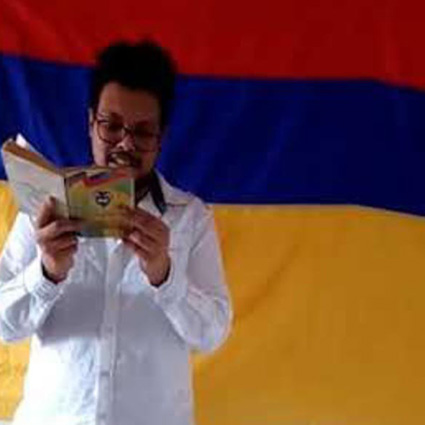
The world is upside down. The states do not govern for their citizens, they have begun to show their lineage and without any shame or modesty, on the contrary, show support for those who least need it and forgetting what is essential and for what they have been chosen to command these ships that are not easy to pilot. Latin America is not spared from this phenomenon that, like a virus, reproduces itself without any problem and continues to leave its traces although they pass and leave more precariousness, inequality and inequity more evident over time and in Colombia 30 years after its award-winning and pompous celebration of the 1991 constituent assembly, it continues to be seen that the central axis of the Magna Carta is not fulfilled, it is made up of several articles, but in my view, articles 11, 12 and 13 are the backbone to avoid the atrocities that are they commit day by day and that in the context of the national strike of 2021 it became even more evident that the forces that should enforce these norms, on the contrary, run over them with more effort. Reading these articles upside down constitutes an action of showing how deformed, deconstructed, destroyed is the socio-political situation in Colombia, which is also the repetitive mirror in a region like Latin America, which is a situation that is getting worse and worse. It also invites a questioning of what can be contributed to rebuild everything that has been destroyed during 30 years since in this time the Magna Carta has never been fully fulfilled because it is the same rulers who have taken care that it is not comply. And even so, I wonder, with what ethics do they go out to defend with shield and sword that a Magna Carta must be respected, which has been stained by them with innocents taken from the people to meet war quotas, in addition to the fact that they themselves do not respect?
Juan Felipe Orozco Posada (October 2, 1987 Rionegro, Antioquia) Plastic artist from the University of Antioquia, appropriates one of the symbols of the social revolution, the hood, to create reflection on Latin American ideological conflicts and the use of this element worldwide; for behind it, the subject to be anonymous, an element considered to be a more dangerous weapon than the same bullets of the State forces. I am interested in the sensations, changes and perceptions of the bodies in violent situations, vulnerable and dominated by \’the fear\’ that they generate university conflicts and social problems, which in turn potentiate certain personal experiences that refer to focused confrontations, which I reveal through sound installations and performances in which the viewer can submit their body to a strong sensory experience; but, reflective about the conflict, seeing reflected in these the actors who actively participate in it and a society “accustomed to violence”. ARTIST’S WEBSITE

